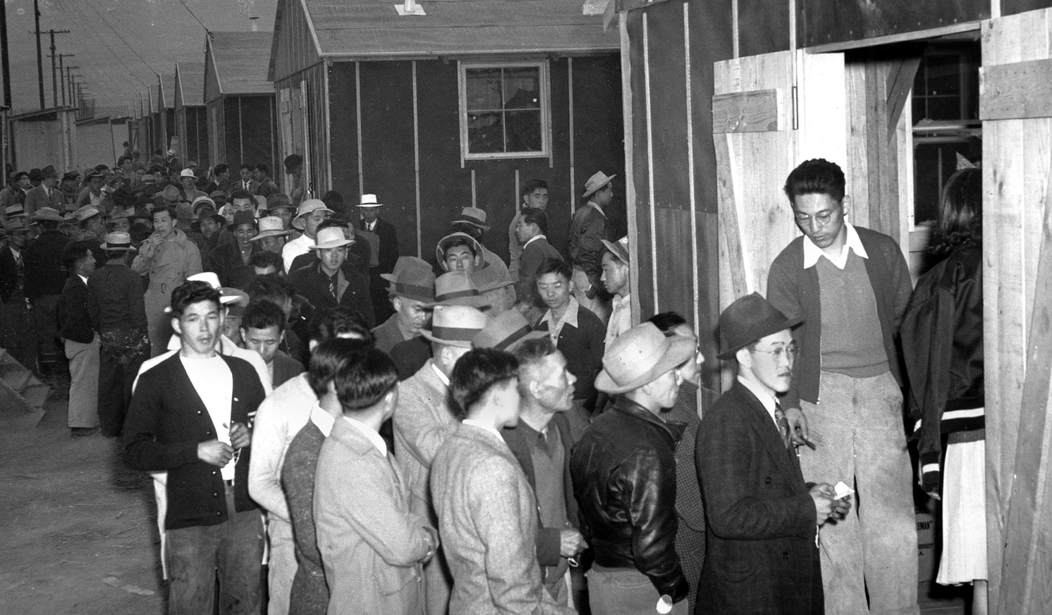WASHINGTON – Rep. Mark Takano (D-Calif.) compared the separation of children from their parents who are caught entering the U.S. illegally at the Mexican border to Japanese internment camps during World War II.
Takano said he visited a Texas detention center recently where he saw children behind “high fences with razor wire.”
“Those images brought back to mind the way that Japanese-Americans, including my very young mother and very young father, were treated during World War II,” Takano said during a conference call organized by Immigration Hub with immigrant-rights advocates last week. “Like then, we’ve allowed hysteria and scapegoating to justify an immoral policy. We are living in disturbing times.”
Takano said his parents were forced by the U.S. government to leave their home.
“Almost 120,000 people, men, women and even young children were moved to internment camps,” he said. “What gives me some small measure of comfort is our efforts to rectify this tragedy were not made in vain.”
Takano applauded former first lady Laura Bush for recognizing the “parallels” between Japanese internment camps during World War II and what’s been happening at the border in a recent op-ed she penned for the Washington Post.
“Illegally entry to the United States is not a felony, it is a misdemeanor, and the president is seeking to change the precedent,” Takano said.
The penalties for “improper entry” into the U.S. are outlined under 8 U.S. Code § 1325.
Former Homeland Security Secretary Jeh Johnson recently said the Obama administration had detained some unaccompanied children at the border in certain circumstances. Photos taken at detention centers during the Obama administration and the Trump administration show children in detention centers behind metal fences. Family separations became Trump administration policy after the Department of Justice implemented its “zero-tolerance” policy, which led to the criminal prosecution of all migrants trying to enter the U.S. without proper authorization, including asylum-seekers not making claims at ports of entry.
Takano charged that Trump only wanted to end family separation because the majority of Americans think it is “cruel and disgusting.” Takano said Trump should stop treating migrants fleeing violence in their home countries as criminals and figure out how to reunite the families that have already been separated. He called on Trump to end the “zero-tolerance” policy so every person crossing illegally is not charged criminally.
“I don’t see how his executive order does anything that members of Congress or the American people have called on him to do,” he said. “His most recent executive order does not end the zero-tolerance policy of criminally charging every single person who crosses the border.”
Former Rep. Mike Honda (D-Calif.) said many of the children separated from their mother or father at the border are likely dealing with PTSD.
“In my mind, the youngsters who are torn from their parents have to be suffering what we would understand as the term PTSD. There’s no way that a child could not be suffering that, as Japanese-Americans have suffered the indignation and the sense that we did something wrong,” he said on the conference call. Honda and his family were sent from California to an internment camp in Colorado in 1942.
Honda also said migrants are entitled to constitutional protections even though they are undocumented.
“Regardless of your status, regardless of how and when you came to this soil you are guaranteed the protection of the United States Constitution. With that, we should be affording that protection and that sustenance to anybody who comes to our shores – let’s not forget that,” he said. “Our soldiers died to protect that right.”
Honda argued that Trump’s “behavior is parallel to a fascist dictator.”
“He wants to have his own way regardless of the kinds of laws we have in place, the kinds of processes we have in place, and he wants to have his own way regardless of the fact that he took an oath of office. He didn’t take an oath of office to our laws, he took an oath of office to our Constitution and to that point he has violated his own oath,” Honda charged. “This country is not a fascist country: the fact that we’re able to argue with our president, have media have different positions. But, ultimately, we’re here speaking out against his own behavior – indicates to me we are not a fascist country.”









Join the conversation as a VIP Member